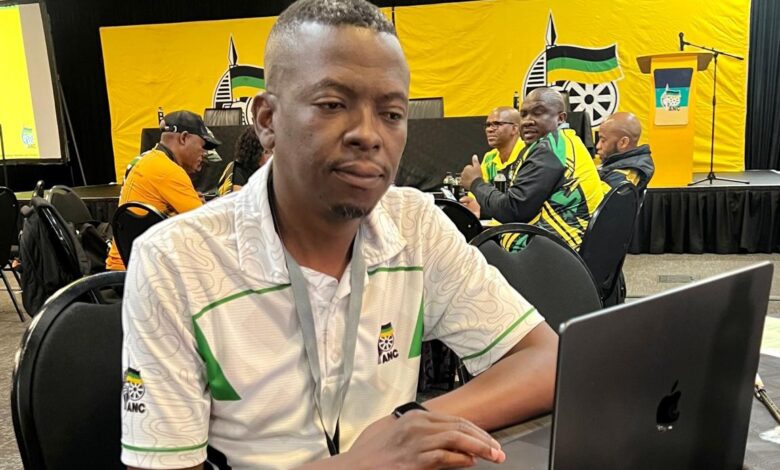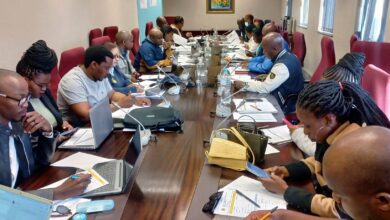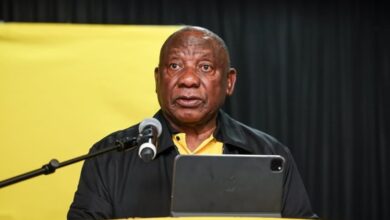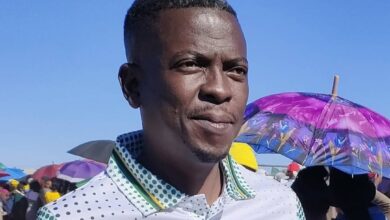‘The Paradox of Protest’, Why South Africans Punish the ANC but Reward Populists.
By Sibusiso Twala (He writes in his personal capacity); In a democracy losing faith in its institutions, authenticity has become a substitute for integrity.

There comes a point in every nation’s story when politics ceases to be about policy and becomes a struggle against inertia — that invisible force which resists movement and dulls momentum.
In physics, inertia is the power required to overcome friction and the resistance of moving parts. In politics, it is the energy needed to confront complacency, entitlement, and moral fatigue.
South Africa is caught precisely at that point.
Many citizens who once walked faithfully with the African National Congress (ANC) — believing in its moral authority and historic mission — now feel abandoned by it. They denounce it as corrupt, arrogant, and detached. Yet paradoxically, some of those same citizens are turning to figures such as Jacob Zuma’s uMkhonto weSizwe Party (MKP) and Gayton McKenzie’s Patriotic Alliance (PA) — leaders whose own ethical records invite scrutiny.
This contradiction is not irrational. It is the sign of a society wrestling with political inertia — a struggle between memory and disillusionment, between the ideals of liberation and the exhaustion of waiting for them to be realised.
South Africans are not rejecting morality itself; they are rejecting what feels like performative virtue — slogans without sincerity, ideals without delivery, and leadership without empathy.
From Liberation to Disillusionment
The ANC’s gravest struggle is no longer with opposition parties — it is with betrayed expectations. The movement that once symbolised moral authority and liberation has become, in the eyes of many, distant, defensive, and self-referential.
Citizens no longer measure it by its heroic past, but by its present failures.
When Jacob Zuma stands before a crowd, they do not see a man defined by scandal. They see someone who speaks their language, shares their anger, and defies the establishment they believe has forgotten them.
To the disaffected, he may be flawed — but at least he is real.
Populism as Emotional Revenge
Support for Zuma or McKenzie is rarely an endorsement of corruption. It is a form of emotional revenge — a backlash against a political elite that preaches ethics while practising exemption.
Populism thrives on resentment. It offers the comfort of rebellion where the state has failed to deliver belonging.
For many working-class South Africans, corruption is not an abstract sin; it is neglect. It is broken infrastructure, unpaid wages, and leaders who no longer listen. In that context, authenticity feels more meaningful than integrity.
The populist message is brutally simple: “They look down on you; I’m one of you.”
The Trump Parallel
The phenomenon is global. From Donald Trump in the United States to Zuma in South Africa, populists have discovered the same emotional grammar: turn scandal into spectacle, accountability into persecution, and victimhood into proof of courage.
Trump’s “Make America Great Again” and Zuma’s liberation nostalgia speak to the same wound — a yearning for recognition by those who feel left behind by a changing world.
Their followers don’t demand moral perfection; they crave defiance.
They want to feel seen, not preached to.
The ANC’s Pincer Moment — and Shaka’s “Horns of the Bull”
The ANC today faces a political pincer movement — a slow but tightening encirclement, both internally and externally.
The situation is not unlike King Shaka kaSenzangakhona’s legendary “Horns of the Bull” (izimpondo zankomo) battle formation, where the enemy was surrounded from both flanks and crushed in the centre by a coordinated assault.
From within, the ANC faces factional inertia, ethical erosion, and organisational fatigue; from without, it confronts populist insurgencies, civic impatience, and electoral cynicism.
The movement’s moral core — once its greatest source of unity — now risks becoming the trapped centre in its own “Horns of the Bull.”
Breaking out of this encirclement will require not counterattack but strategic renewal — the political equivalent of Shaka’s discipline, adaptability, and unity of purpose. Without this, the ANC may continue to lose ground on both fronts: squeezed by internal paralysis and external revolt.
Overcoming Inertia: The Power to Move Again
Renewal, for the ANC, demands the same energy physics attributes to motion — force sufficient to overcome friction and inertia.
That force cannot be generated by rhetoric or policy documents alone. It must come from the reawakening of moral conviction, ideological clarity, and organisational discipline.
The ANC cannot reclaim the moral high ground by sermonising about corruption while tolerating it internally. Nor can it out-shout the populists who speak the people’s language of anger and pain.
It must rebuild trust through credibility — not through slogans, but through demonstrable ethical consistency and visible delivery.
Integrity must again feel tangible. Cadre deployment must reward competence, not loyalty.
And humility must return as the movement’s political vocabulary.
People no longer respond to historical virtue; they respond to emotional truth.
A Crisis as a Gift
Cde Kgalema Motlanthe once said that perhaps the ANC must lose power — or at least reach the edge of it — before it can truly renew itself.
He was not calling for its defeat but warning that comfort dulls conscience. Liberation movements rarely reform when insulated by incumbency. Power without consequence creates arrogance. Renewal, in history, often follows humiliation. Motlanthe’s wisdom was simple: only when a movement feels the pain of lost trust will it rediscover its soul.



